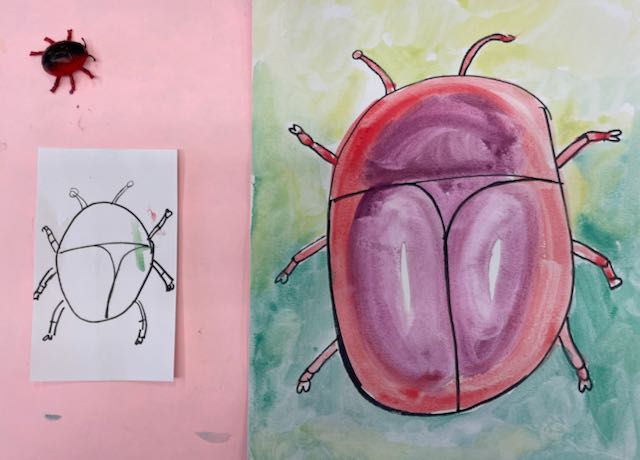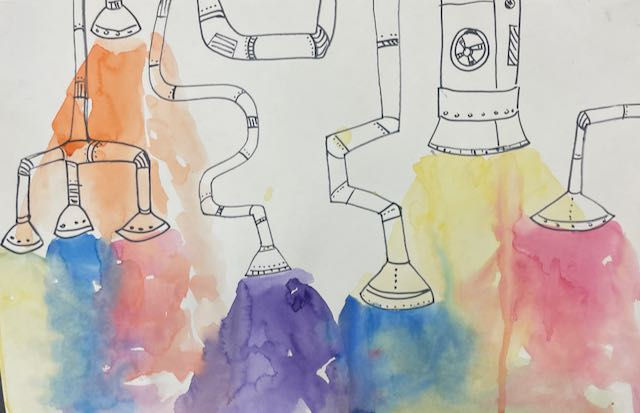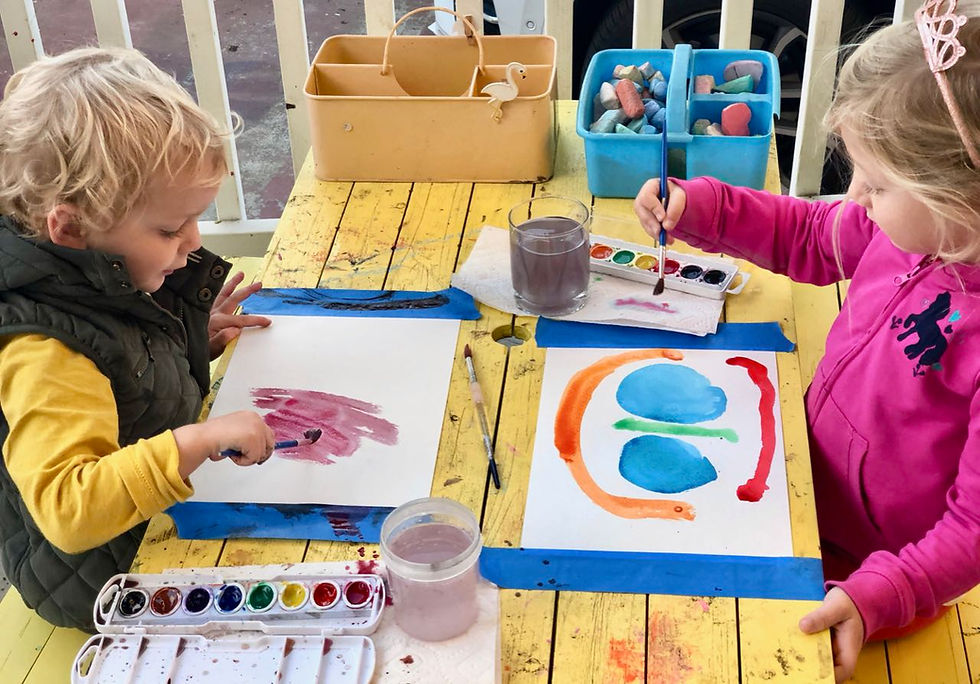Alphabet Art, one of the best first grade art projects!
- ArtfulMommy

- Apr 12, 2024
- 2 min read
I've seen different variations of this project on the internet and decided to give it a try with my first graders. Alphabet Art is an exercise in painting lines of various thickness using different size brushes. I promise that this project will be simple, satisfying and successful for every child! This is a great project for kinder and first grade.

Materials Needed: Black Construction paper. White tempera paint. Various brush sizes. Oil Pastels.

Day 1: I started by reading "Chicka Chicka Boom Boom," to my class. First graders love this book! It is all about the alphabet, the perfect inspiration! Next I showed them examples of the work of artists who incorporate words into their artwork, for example, Mel Bochner's "Blah, Blah, Blah."
Next, I demonstrated to the class how to paint. First graders need to be taught everything. Over, and over again! I explain how they need to get a good amount of paint on the tip of the brush, and rest their hand on the paper so that their lines are not shaky. I demonstrate painting with different size brushes. I even break out what I call the "worlds smallest brushes" and show them how to neatly write their name on the bottom right hand corner of the paper. I always tell students to put their names on the front of their paper. I want them to be proud of their work, and put their name on the front so that when it gets hung on a wall, every one will know they did it!
I suggested that they start with one big letter, the first letter in their first name. The rest of the letters can be any size they want. I told them to turn their paper sideways and upside down and write letters going every which way so that it looks like alphabet soup! I suggested that they write the entire alphabet! When they were done I had them put their papers on a drawing rack. One little girl did the cutest, smallest letters ever. Whenever I see someone trying something different from everyone else, I know this child is exercising their freedom of creativity. Allowing for creativity ensures that no two works of art look the same and it makes for happy children.
Day 2: I demonstrated how to use oil pastels. I explained how they can put down one color, then another color on top of it to make a new color, this is called blending. I suggested that they add color to their Alphabet Art. I recommended that they start by outlining some letters. I told them that if they wanted to color some letters all the way in they could. I also showed them how they could draw patterns into their letters. They went to their tables and enjoyed the process of adding color!
When students finish early, I give them the option to free draw or read. One little girl left a piece of paper behind for me, it said, "Do art, dont let pepol contrl you." I think this is going to be my new motto in the art room, lol! I love that she feels like when she is doing art, no one is controlling her.











Comments